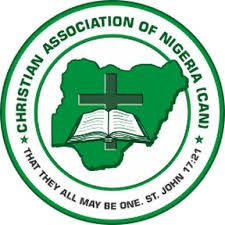
Lawmakers furious as TCN fails to disclose actual amount electricity generated daily
Transmission Company of Nigeria (TCN) officials on Monday exhibited their ignorance about the industry in which the company is a critical stakeholder before the House of Representatives Committee on Finance when they could not state categorically the amount megawatts of electricity generating companies generate daily, particularly the Azura power company.
The federal government had signed series of agreements with Azura — namely the power purchase agreement (PPA) on April 22, 2013, the put/call option agreement (PCOA) on October 22, 2014 and the PCOA “direct agreement” on December 18, 2014, with a clause that the federal government would “take or pay” for power generated as declared by Azura, “whether or not it is taken by the government-owned transmission company.”
The committee chaired by Hon. James Faleke (APC, Lagos) also picked holes in the $33 million being paid monthly to Azura, lamenting that two or three persons might have sat down to commit Nigeria to such an agreement without commensurate value for money.
At the resumed investigative hearing, the lawmakers while expressing concerns about the erratic power supply in the country, lampooned the three Directors from TCN, warning that their seats were in danger for failing to represent Nigerians.
Faleke who accused the TCN officials of not being ready to tell Nigerians the truth, said the officials were trying to twist issues relating to power generation by Azura power company
According to him, the TCN ought to know the number of electricity megawatt consumed per day.
He said, “I am not confused. Transmission Company of Nigeria, first your MD took permission, according to you, to see the minister rather than coming to explain to Nigerians and to clarify issues. Market operator, if I understood your earlier statement that they have not been producing up to the 450 that was signed and they have justification for not producing up to that, in that case, will you say as a Nigerian that they have violated the agreement they signed?
“What you are telling Nigerians generally is that from the position you hold and being paid by taxpayers, you are not representing Nigerians and that your seat is already in danger.
“That is what you are telling Nigerians because you cannot even take an informed decision when it is necessary to take decisions on behalf of Nigerians. That is exactly what you have just exhibited.
“Why you are here before us was because you evacuate the power produced by Generating Companies, not only Azura. NBET was here on Friday and they will still be here tomorrow or so. So, it is not closed.
“We are only asking you from your own function as an evacuator of power, what power you have been evacuating from a 450megawwats generation company. We have not gone into other power generation companies. We have just picked one – not one.
“And do you know why we are concerned? We are concerned that Nigerians are willing to set up industries but there is no power, yet we are paying huge sums of money. This is just the issue, nothing more; not witch hunting. It is not about TCN; it is about Nigeria. So, all the questions that I have for TCN, I have to reserve them until your MD is here.
“There are other vital questions that this committee will want to ask. When the MD is seated, we will ask. Whatever position we have found ourselves, we are just opportune amongst 200 million people.”
Corroborating Faleke’s statement, another member of the Committee, Hon. Taiwo Oluga said, “If it is your document and we are arguing on it, whether it is megawatts or it is in kilowatts, an agreement has been signed on behalf of Nigerians in megawatts. Now you are presenting documents to the House in kilowatts/hour. So, Mr. Chairman, I will want to say that maybe these documents, they should re-present while we expect the chief executive to come and explain to Nigerians why $33m will be paid (to Azura) every month, yet we are not getting results.”
Another lawmaker, Hon. John Dyegh suggested that they submit the documents presented TCN to a consultant for a proper analysis.
The TCN Directors, Victor Adewumi, Executive Director, Transmission Service Provider, Engr Edmond Eje, Director Market Operations, and Mr Ogwu Benedict, in charge of Agreement, had in their presentations said Azura was supposed to generate 450 Megawatt and most of the time its generate lower.
In his ruling, Faleke summoned the Managing Director of TCN, Sule Abdulaziz, to appear before it unfailingly August 23.
The Committee currently investigating the proposed sale of the Nigerian Integrated Power Project (NIPP) had at the investigative hearing last week, with the Managing Director of NBET, Nnaemeka Eweluka, TCN, and Federal Inland Revenue Service, lamented that Nigerians do not get value for the huge sum of money they are paying.
The TCN Directors are: Victor Adewumi, Executive Director, Transmission Service Provider, Edmond Eje, Director Market Operations, and Ogwu Benedict, in charge of Agreement, had in their presentations said Azura was supposed to generate 450 Megawatt and most of the time its generally lower.
In his ruling, Faleke summoned the Managing Director of TCN, Sule Abdulaziz, to appear before it unfailingly on August 23.



